Cost of Living: Chocolate and sweet prices rise ahead of Easter
- Published
- comments
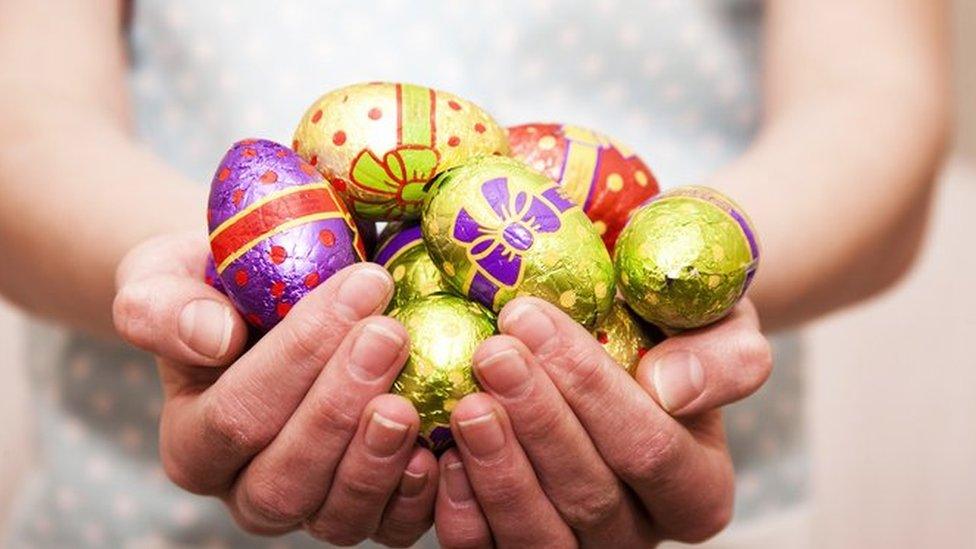
Sweet treats have been becoming more expensive
The price of chocolate eggs is expected to rise in the next few weeks, according to British retail experts.
Chocolate, sweets and fizzy drinks are all becoming more expensive, as well as fruit and vegetables.
Last month, food prices rose at the highest rate for 45 years.
So why are certain foods getting more expensive? Read on to find out.
Why are sweets, chocolate and fizzy drinks costing more?
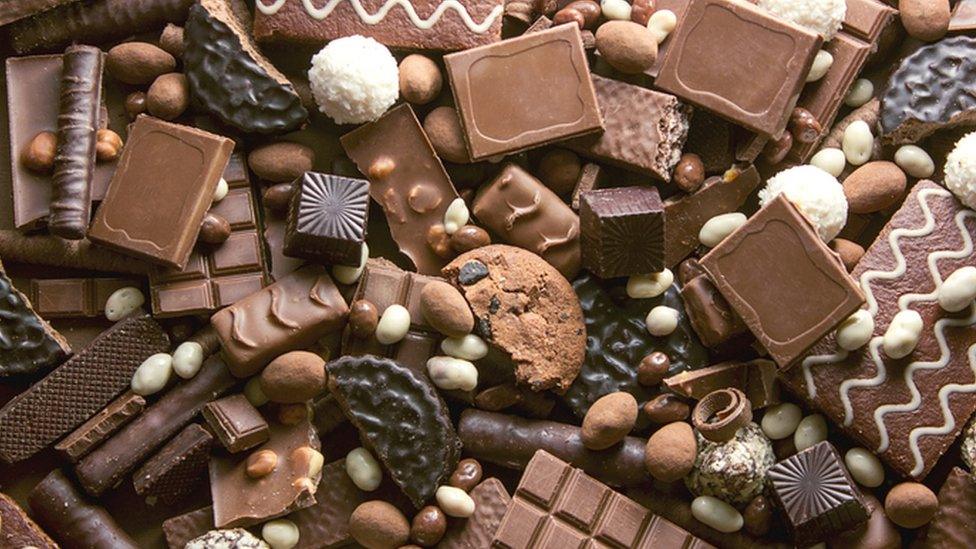
Many sweet treats are becoming more expensive, just ahead of the Easter holidays.
Recently fruit and vegetables like peppers, cucumbers and tomatoes were rising in price. But now, as people prepare for their Easter egg hunts, prices of sweet treats are going to affected.
Fruit and vegetables rose in price due to supply issues - which is a term for when there is not much of a certain product available.
This was caused by poor weather in Spain and in North Africa, where lots of fruit and veg is grown, meaning fewer vegetables grew than expected.
When there is less of something but people still want to buy it the price goes up.
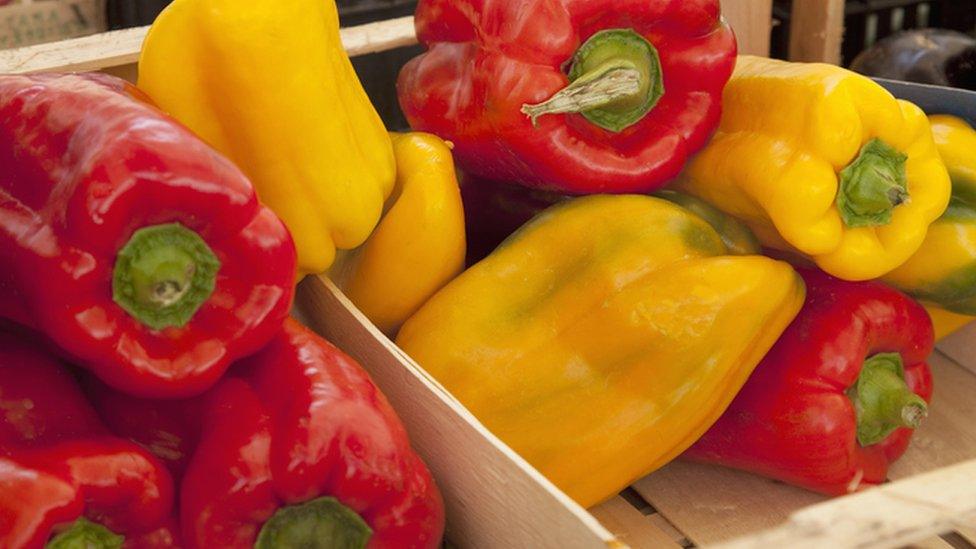
Peppers have become more expensive recently
Why are the prices for food, energy bills and fuel rising?
Prices are currently rising fast for things like eggs, milk, and cheese. Groceries cost 17.5% more now than they did last year.
This is what we call inflation - when things increase in price over time. When this changes we call it the inflation rate, and this can go up or down.
At the moment energy prices are going up due to a higher demand for fossil fuels.
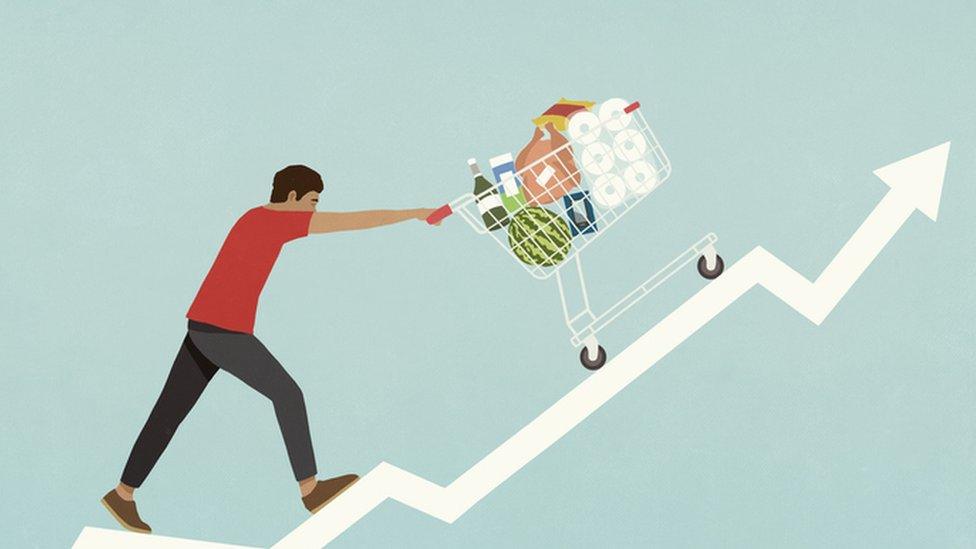
Why do higher energy prices mean inflation and higher food prices?
Energy going up has a knock-on effect on everything else.
If you think of a factory where chocolate is made - you need electricity to run the factory to make the products. This means it's more expensive to run if energy - like electricity or gas - now costs the factory more to use.
Then, you also need petrol to transport the products to a shop - which has also become more expensive.
Still not sure? Check out Newsround's big guide to inflation!
Supply chains: What are they and why are they so important?
Will food prices go down in the UK?

Whilst it is impossible to predict exactly what will happen, we can look at what the experts are saying about prices.
The government has a price forecaster - a bit like a weather forecaster - but for what will happen with inflation in the future. It's called the Office for Budget Responsibility, or the OBR.
The OBR thinks inflation should go down this year as energy and food prices rise less quickly than in recent times. This doesn't mean that prices will go down, however, just that they won't rise at this same rate for as long as possible.
Imagine it like squeezing a brake on the bike - it doesn't make the bike go backwards, but it does slow it down.
An expert from the Bank of England also has been advising firms to not put prices up faster than inflation - even though it's costing more to produce things. They said it could drive the cost of living up even further.
- Published4 July 2022
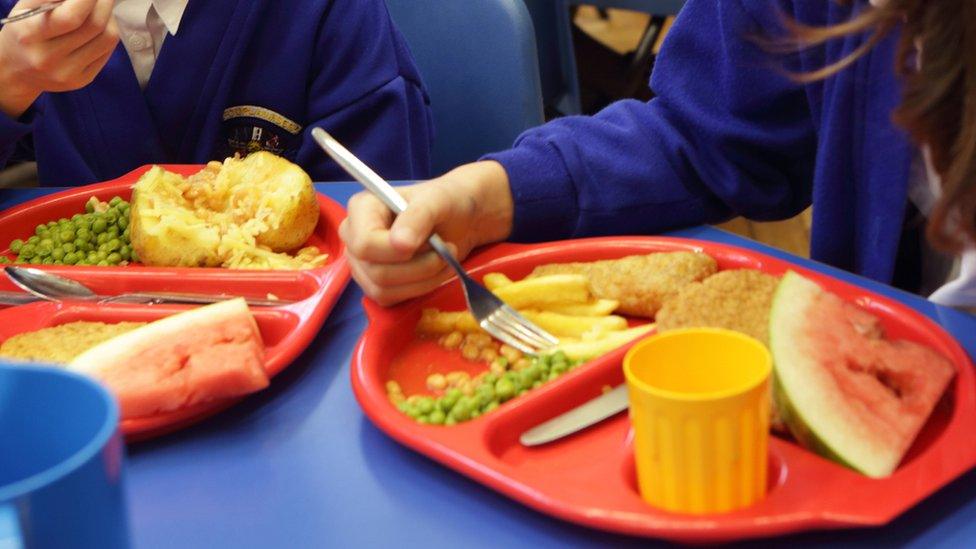
- Published26 May 2023

